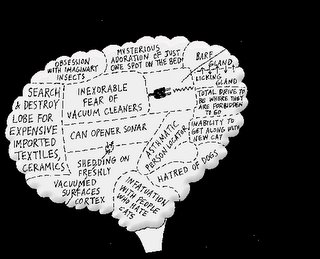 "The remaining noticable characteristic of 'Che' is his filth. He hates to wash and will never do so. He is filthy, even by the rather low standard of cleanliness prevailing among the Castro forces in the Sierra Maestra. Once in a while, "Che" would take some of his men to a stream or pool, in order that they might wash. On those occasions "Che" would never wash either himself or his clothes, but would sit on the bank and watch the others. He is really outstandingly and spectacularly dirty." --slanderous description of Che Guevara from the 1958 C.I.A. dossier
"The remaining noticable characteristic of 'Che' is his filth. He hates to wash and will never do so. He is filthy, even by the rather low standard of cleanliness prevailing among the Castro forces in the Sierra Maestra. Once in a while, "Che" would take some of his men to a stream or pool, in order that they might wash. On those occasions "Che" would never wash either himself or his clothes, but would sit on the bank and watch the others. He is really outstandingly and spectacularly dirty." --slanderous description of Che Guevara from the 1958 C.I.A. dossier[...]
These days, cleanliness is defined more by corporations selling "sanitation products" than by anyone else. This is important to keep in mind. Certainly, most of these products have an uncanny ability to cut through natural dirt and grime-but does removing natural dirt and grime with synthetic chemicals necessarily constitute the only acceptable form of sanitation? I'm at least as frightened by these manufactured, artificial products as I am of a little dust, mud, or sweat, or (god forbid!) a stain from food or blood on my shirt. At least I know where the dirt/"filth" came from and what it's made of!
The idea that it is worthwhile to use chemicals (whether they be deodorant, detergent, or shampoo) to eradicate organic dirt has some frightening implications, too. First, it supports the old Christian superstition that the biological body is shameful and should be hidden--that our bodies and our existence in the physical world as animals are intrinsically disgusting and sinful. This groundless idea has been used to keep us insecure and ashamed, and thus at the mercy of the priests and other authorities who tell us how to become "pure": once, by submitting to their holy denial of the self, and now, by spending plenty of our money on the various "sanitation" products they want to sell us. Also, as capitalism transforms the entire world from the organic (forests, swamps, deserts, rivers) to the inorganic (cities of concrete and steel, suburbs of asphalt and astroturf, wastelands that have been stripped of all natural resources, garbage dumps) the idea that there is something more worthwhile about synthetic chemicals than natural dirt implies that this transformation might actually be a good thing... and thus implicitly justifies their profit-motivated destruction of our planet.
[...]
Continues on Deoxy.org

